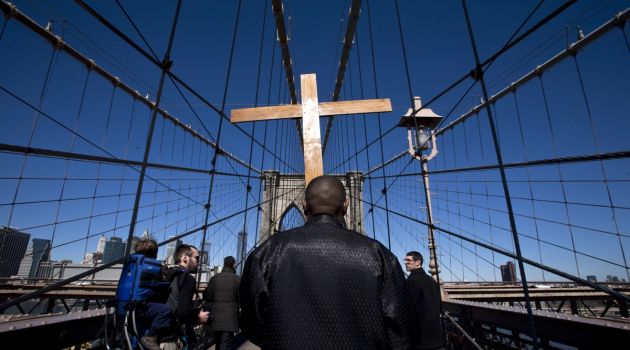In the U.S. belief in Christianity is falling rapidly: Pew study

The number of U.S. adults identifying as Christians is rapidly declining, while religious 'nones' have grown, a new Pew Research Center study shows.
The survey released on Oct. 17, shows that after trailing European countries, the Unite States is showing it is following the path of Europe.
The religious landscape of the United States is changing rapidly, found Pew Research Center telephone surveys conducted in 2018 and 2019,
They found that 65 percent of American adults self-describe as Christians when asked about their religion, 12 percentage points down over the past decade.
The religiously unaffiliated share of the population in the meanwhile, consisted of people who describe their religious identity as atheist, agnostic or "nothing in particular".
It now stands at 26 percent rising from 17 percent in 2009.
Both Protestantism and Catholicism have shown losses of their share of the population.
Currently in the United States, 43 percent of U.S. adults identify with Protestantism.
That is down from 51 percent in 2009. In the United States, one-in-five adults (20 percent) are Catholic, sliding from 23 percent in 2009.
At the same time, all subsets of the religiously unaffiliated population – a group also known as religious "nones" – have swelled in their numbers.
Self-described atheists now account for 4 percent of U.S. adults, up modestly but significantly from 2 percent in 2009; agnostics make up 5 percent of U.S. adults, up from 3 percent a decade ago; and 17 percent of Americans now describe their religion as "nothing in particular," up from 12 percent in 2009.
Members of non-Christian religions also have grown modestly as a share of the adult population.
These are among the key findings of Pew Research Center's recent new analysis of trends in the religious composition and churchgoing habits of the American public, based on random-digit-dial (RDD) political polling on the telephone.
The data shows that the trend toward religious disaffiliation documented in the Center's 2007 and 2014 Religious Landscape Studies, and before that in major national studies like the General Social Survey has continued apace.